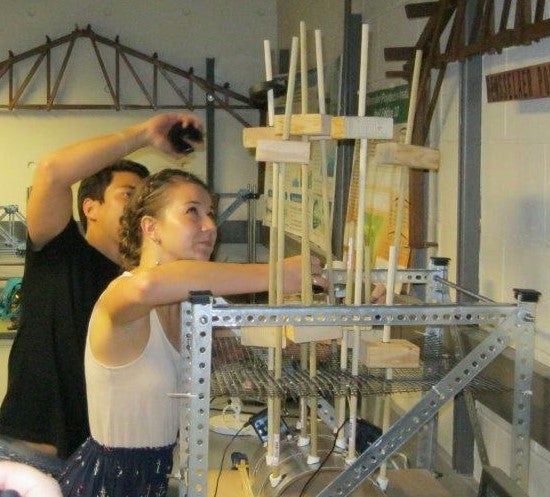
Educational Objectives
Rensselaer's Civil Engineering and Environmental Engineering programs are both designed to prepare students for continuous learning and successful careers in industry, government, academia, and consulting.
Within a few years of graduation, Bachelor of Science graduates in both programs are expected to:
- Responsibly and ethically contribute to their chosen field of expertise as professionals who apply engineering judgement to problem-solving, design, and discovery.
- Continue to develop both professionally and personally through contributions to professional societies, continuing education, service to the community, and progression toward professional licensure.
- Further develop leadership skills, communicate in professional and civic forums, and pursue increasing levels of responsibility.
The Civil Engineering program at Rensselaer is accredited by the Engineering Accreditation Commission of ABET, under the commission’s General Criteria and Program Criteria for Civil and Similarly Named Engineering Programs.
The Environmental Engineering program at Rensselaer is accredited by the Engineering Accreditation Commission of ABET, under the commission’s General Criteria and Program Criteria for Environmental Engineering and Similarly Named Engineering Programs.
Student Outcomes
Students who successfully complete the respective curricula of the Civil Engineering and Environmental Engineering programs will be able to demonstrate an ability to:
- Identify, formulate, and solve complex engineering problems by applying principles of engineering, science, and mathematics
- Apply engineering design to produce solutions that meet specified needs with consideration of public health, safety, and welfare, as well as global, cultural, social, environmental, and economic factors
- Communicate effectively with a range of audiences
- Recognize ethical and professional responsibilities in engineering situations and make informed judgments, which must consider the impact of engineering solutions in global, economic, environmental, and societal contexts
- Function effectively on a team whose members together provide leadership, create a collaborative environment, establish goals, plan tasks, and meet objectives
- Develop and conduct appropriate experimentation, analyze and interpret data, and use engineering judgment to draw conclusions
- Acquire and apply new knowledge as needed, using appropriate learning strategies.
Enrollment and Graduation Data
Civil Engineering
| Full-Time Enrollments | Degrees Awarded | ||||||||
| Year | 1 | 2 | 3 | 4 | UG Total | Grad Total | Bachelors | Masters | Doctorates |
| 16/17 | 39 | 42 | 39 | 72 | 192 | 21 | 62 | 27 | 3 |
| 17/18 | 50 | 50 | 58 | 43 | 201 | 31 | 52 | 12 | 1 |
| 18/19 | 49 | 47 | 67 | 43 | 217 | 41 | 52 | 16 | 5 |
| 19/20 | 39 | 48 | 67 | 69 | 223 | 49 | 70 | 16 | 3 |
| 20/21 | 54 | 44 | 43 | 74 | 215 | 64 | 62 | 22 | 4 |
| 21/22 | 54 | 39 | 44 | 59 | 196 | 63 | 53 | 23 | 8 |
| 22/23 | 54 | 44 | 43 | 74 | 215 | 64 | 53 | 16 | 1 |
| 23/24 | 69 | 49 | 50 | 48 | 216 | ||||
Environmental Engineering
| Full-Time Enrollments | Degrees Awarded | ||||||||
| Year | 1 | 2 | 3 | 4 | UG Total | Grad Total | Bachelors | Masters | Doctorates |
| 16/17 | 17 | 15 | 15 | 18 | 65 | 4 | 16 | 5 | 1 |
| 17/18 | 29 | 14 | 15 | 15 | 73 | 3 | 17 | 7 | 0 |
| 18/19 | 18 | 19 | 12 | 14 | 63 | 5 | 13 | 2 | 0 |
| 19/20 | 13 | 12 | 15 | 14 | 54 | 3 | 14 | 1 | 1 |
| 20/21 | 19 | 10 | 13 | 15 | 57 | 10 | 12 | 5 | 0 |
| 21/22 | 15 | 12 | 8 | 16 | 51 | 5 | 9 | 0 | 1 |
| 22/23 | 30 | 9 | 7 | 17 | 63 | 10 | 14 | 4 | 0 |
| 23/24 | 14 | 16 | 11 | 10 | 51 | ||||